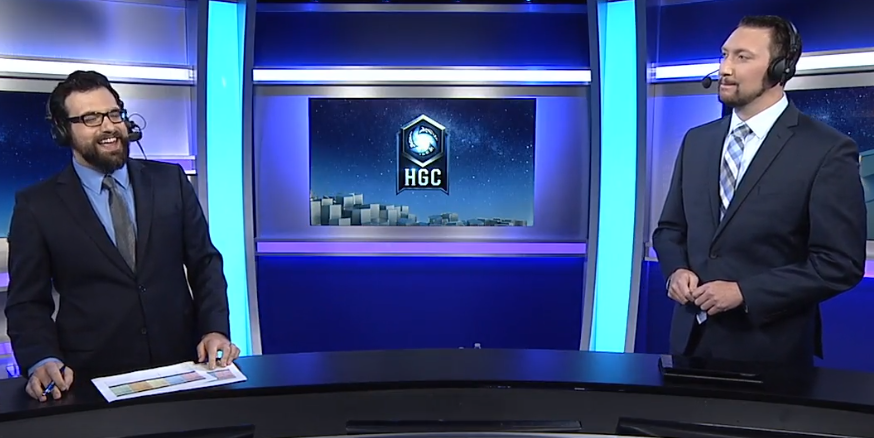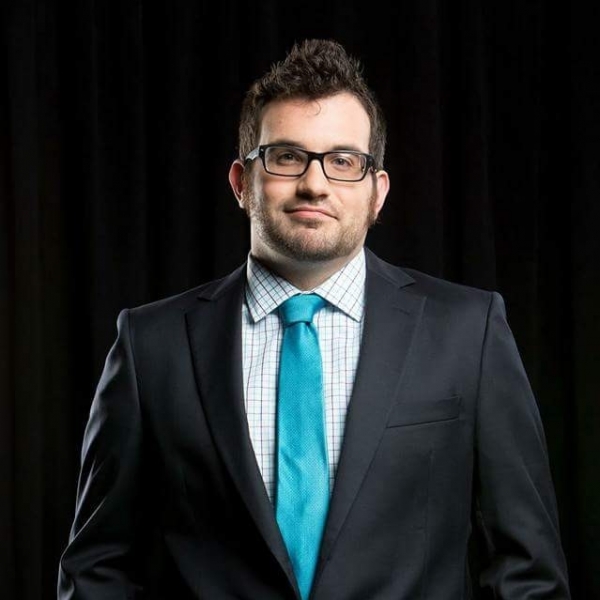
Heroes of the Storm caster Jake “SolidJake” Kulinski has a unique perspective that he is able to view the competitive community from, a view seldom seen by others.
As one of the casters of the amateur competitive scene, known as Open Division, SolidJake has experience seeing players' careers blossom over time as well as the trials and tribulations they may endure along the way. He also understands the importance of having a strong bedrock to grow new talent in.
“I honestly think that in North America, Open Division is probably the best thing to happen to the Heroes Global Championship (HGC) because the level of play has changed so drastically,” said SolidJake. “We went from having maybe one team that was decent to having an average of four teams that are actually contesting for that top spot by the end of the season. We can see real growth from Week 1 to playoffs.”
The growth of the amateur scene is not only beneficial to those aspiring to go pro in the future but improves the entire scene by putting pressure on current HGC veterans, according to SolidJake.
I think it is essential because without the player pool there is no one challenging the people at the top. If they feel safe, feel like they're not going to be challenged and they are not going to challenge themselves. It doesn’t help anyone. I think it was (Thomas “Khaldor” Kilian) that said in an article that ‘North America acts entitled and complacent.’ I think a lot of players are like that.
Frankly, I think there are plenty of people that have gotten knocked out of HGC that deserve to be knocked out. I think there are other players that might not actually appreciate what they have and it is a shame. It's a shame that HGC has kind of bred that mentality for some players.

Under the current HGC format, twice a year the top two amateur teams from each region challenge the bottom two professional teams for a chance to take their spot in the pro scene. The event, called The Crucible, is vital to any esports scene to prevent stagnancy and allows new blood to shake up the current ebbs and flows.
While the current format allows up to a dozen new teams across all three major regions to enter the HGC over the course of a calendar year, SolidJake believes an older format Blizzard used may be more ideal going forward.
I do not know if there's anything else they can do under the current structure of things. The best way to basically make the Open Division better is to bring things back to the way things used to be before HGC. I think providing salaries and regular play in this kind of ‘elite club’ of top-8 teams makes it very difficult to break into. Beyond that, maybe two teams every six months get to advance. It is very, very small and limited.
The old format where there were many more Cups and LANs, where a team could have a breakout performance and make a name for themselves, I think is healthier. But that is just my personal stance on esports structure. I think leagues can work but I do not know if Heroes is big enough for a league.
SolidJake expanded on his belief that the current HGC league structure does not operate in an optimal condition. Having players play at a local level, such as in the Overwatch League, allows sponsors to see their product more often opposed to dealing with other issues that exist via playing online and provides a better overall experience.
I don't like the fact that they run a league where the players are not local. If you are going to do something, do it fully. Half-assing it and running this league where ping is an issue, where players are online and where we hardly get a name to a face, I do not even know if it is worth it. I really don't.
It’s great that players are getting more consistent income, something around $20,000 for the whole year, which is fine, but that's still a part-time job salary. That is not even a full-time job so they can put in the same sort of effort towards opportunities to get flown out where all eight teams in North America are playing against each other in a LAN environment at DreamHack or whatever.
I feel like that ultimately would help the community grow as a whole because they are facing off in-person more frequently and it feels like more of a grand experience happening a few times a year rather than, ‘Okay two teams get to face off against Europe and maybe they will win a couple times throughout the year.’
-

Tim Rizzo is the editor and a reporter for Inven Global. He joined the company back in 2017.
Sort by:
Comments :0





